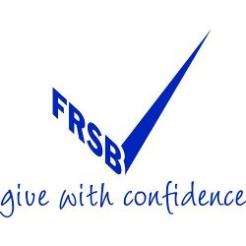Some 225 mainly small organisations signed up to fundraising self-regulation last year, according to the Fundraising Standards Board's annual accounts which also show a dramatic increase in administration costs.
The FRSB annual report, released today, shows that the fundraising regulator increased its membership to 1,547. The membership growth is very much at the smaller end of the charity spectrum; four out of five new member charities have income of less than £1m a year and accordingly pay a maximum annual fee of £270.
One-third of FRSB members are charities with income of between £100,000 and £1m a year, and just 83 charities turning over more than £10m are part of the self-regulatory scheme. Charities reporting income above £50m per annum are subject to a £5,000 annual fee. Just under 100 fundraising 'suppliers' have signed up with the FRSB.
The FRSB is now attempting to address this balance and recruit more of the larger fundraising charities to its membership. In the coming year, the FRSB says it will focus on signing up charities with income of more than £1m.
It also intends to continuing working on clarifying the roles different organisations play within fundraising self-regulation. The sector is still awaiting the results of a PWC report into how the three key organisations - FRSB, Institute of Fundraising and the Public Fundraising Regulatory Association - can best work for fundraising.
Minister for civil society Nick Hurd backed this push for larger charities to join up to the scheme. “I would also urge any £1m-plus fundraising charities that haven’t yet made the commitment to do so now, and join the rest of the charity sector in using the tick logo to give the public confidence in their charity’s fundraising,” he said.
FRSB board chair Colin Lloyd said: “At the start of 2013, we set out to strengthen self-regulation, to resolve ambiguity over the roles and responsibilities of the sector bodies involved and to re-energise our charity membership recruitment strategy. This continues as does the FRSB’s role in growing the sector’s public commitment to best practice and accountability which is critical.”
Increased costs
The cost of this expansion of membership - alongside relocating FRSB offices and legal fees - has resulted in an £80,000 increase in administration expenses at the organisation. In 2012 administration costs came in at £410,539 and in 2013 this rose to £490,276. Accordingly, the retained surplus reported by the FRSB in its 2012 accounts has fallen sharply from £60,000 to £4,552 in the 2013 financial year. Overall income at FRSB increased from £467,213 in 2012 to £489,240, leaving the charity with a small operating deficit.
Fundraising audits
FRSB reports that is has begun its programme of auditing charity complaints, but rather than spot checks this has involved creating a benchmarking report for the 400 charities which account for nine out of ten complains recorded in the FRSB's annual complaints report. The regulator has set in motion a series of meetings with those charities with higher-than-average complaints level. It will begin auditing all members' compliance with best practice in January 2015.









